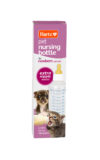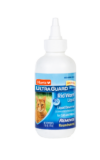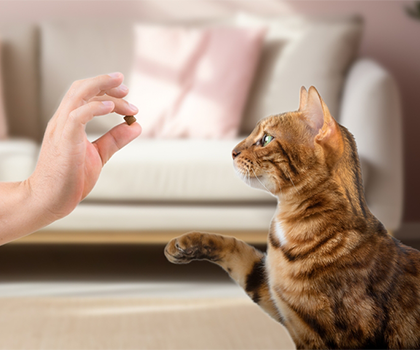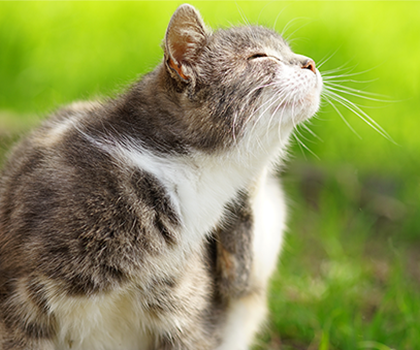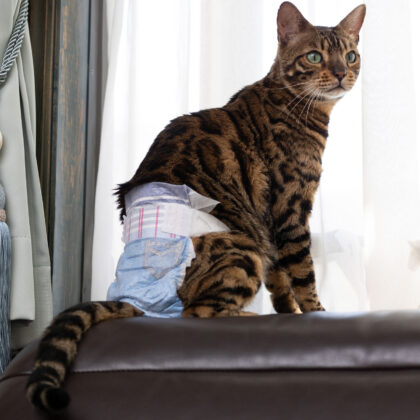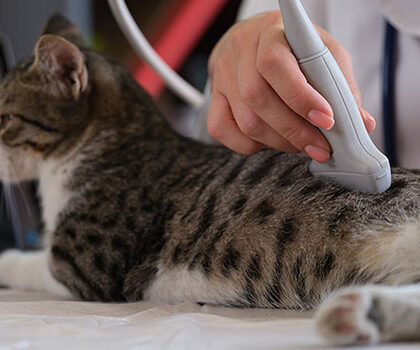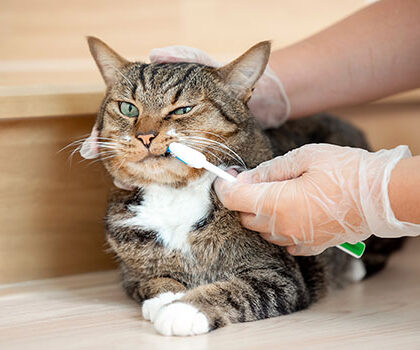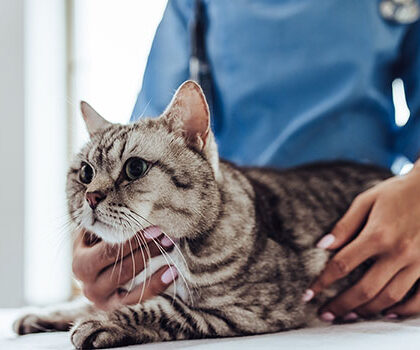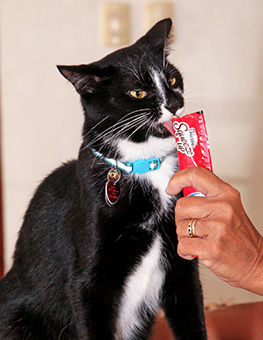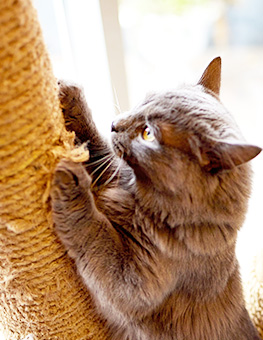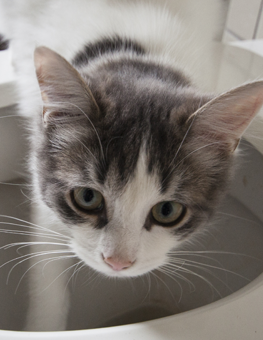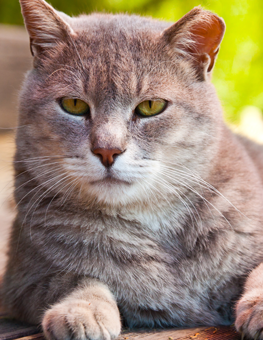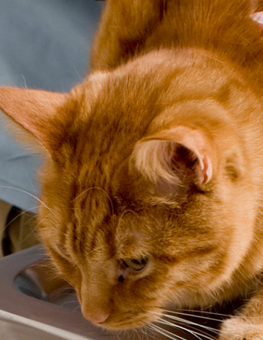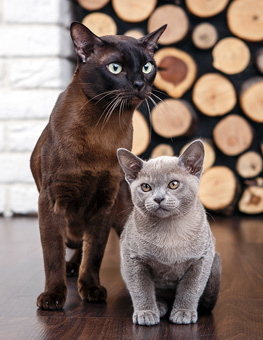Caring for Kittens
Tips on Bottle feeding, Weaning, Litter Training, Socialization & Preventive Health Measures
If you’re welcoming a new kitten into your family, a challenging, yet rewarding experience awaits! Whether your kitten has been adopted at an appropriate age, or you’ve opened your home to a newborn orphan, you’ll need tips on raising your new pet into adulthood. We’ll cover every aspect of kitten care from bottle feeding and weaning to litter box training, as well as how to fulfill the physical, emotional and nutritional needs that kittens have.
Kitten development and growth milestones
The first formative months of a kitten’s life are filled with rapid developmental changes as they progress from defenseless, blind newborns into miniature cats that are playful, curious and independent. Each week, a kitten will require different types of care as they mature.
Under 4 weeks of age
From birth to their first four weeks of life, kittens are considered newborns. In weeks 0-2, their eyes will be closed and they can only navigate by scent, though they are largely uncoordinated and move about by wiggling and crawling. It is critical to provide a heat source for baby cats at this stage, as they cannot thermoregulate. Newborn kittens require their mother full-time, however if left abandoned, they must be bottle fed with kitten-specific formula every 2 hours, stimulated to go to the bathroom, and kept warm at an appropriate body temperature (97 degrees Fahrenheit). At this age, kittens may show some signs of interest in the world around them, but will not yet be playing and instead spend most of their time sleeping.
Bottle feeding
You can purchase a pet nursing bottle at most pet stores that is specifically sized for the small mouths of newborn animals. Kittens must be fed a formula that emulates a mother cat’s milk, and cannot be given cow’s milk. Be sure to prepare the formula according to the manufacturer instructions and feeding guidelines.
This will help her muscles to pass stool and urine, as young kittens don’t go to the bathroom on their own, and are normally stimulated to eliminate by their mother cat licking them.
By 3-4 weeks, a kitten’s eye will open and they are better able to walk as their coordination improves. With improved senses of hearing, sight and smell, they will be more responsive to their pet parents. Kittens this age will still need to be bottle fed every 4-5 hours, but can be introduced to a shallow litter box as they are able to use the restroom now without stimulation.
Litter box training
Cats have a natural instinct to eliminate in sand or soil. You will not need to train a kitten to use a litter box in the same manner as you would house-train a puppy. Simply showing your kitten where the litter box is in an easily accessible, quiet location will get her off on the right paw. Take her to the box and show her how to scratch the litter, placing her in the box several times a day. Your kitten should make the adjustment quickly. If you notice frequent accidents or trouble eliminating, consult your veterinarian to make sure no medical problems exist.
Weeks 5-8
Around 5 weeks of age, kittens are ready to begin trying more hearty foods. Now is the time to slowly introduce wet food into her diet. Wet food made for kittens is higher in the calories, fat and protein that she needs. The moisture content in wet food also helps kittens stay hydrated.
Weaning
Start weaning your kitten off bottle feeding by creating a mix of formula and wet kitten food. Often called “slurry”, this transitional meal will help your kitten become more comfortable consuming solid foods and learn how to eat from a dish. Always supplement bottle feeding during this process to make sure your kitten is getting a full meal.
Once she’s eating confidently on her own, you can switch completely to wet food.
Socialization
After they reach one month of age, kittens will also begin to run and play confidently. This is a critical time to begin socialization through play as well exposure to surroundings.
Cats that have been properly socialized are more likely to adapt well in unfamiliar situations or changes in their environment. Kittenhood is the prime period to teach your companion how to enjoy various sights, sounds, people and other animals. Pairing new experiences with rewards, such a treats and encouragement, will create confidence in you both.
Kitten development requires you to be actively involved and committed. Some important aspects of ensuring proper socialization include:
- Frequent petting and attention
- Playtime with toys for different play patterns (swat, hunt, interact, explore)
- Rewarding good behavior with treats
- Redirection and correction from biting or scratching
- Introduction to new people and animals in a safe environment
- Grooming and handling
- Controlled outdoor exploration (after vaccinations have begun)
Preventive Care
To give your kitten the best opportunity to live a healthy life, they should receive core vaccinations between 6-8 weeks of age. All kittens should be protected against feline rhinotracheitis, feline calicivirus, and feline panleukopenia (FVRCP). These diseases are abundant in nature and frequently found in the general cat population. Rabies is another core kitten vaccination that is typically given around 12 weeks of age.
Intestinal parasites, fleas and ticks
Of all threats to your kitten, one of the most common dangers is fleas and ticks. Look for flea and tick drops or collars that are specifically dosed for kittens, and practice responsible preventative care with year-round protection.
When to spay or neuter
By 5-6 months of age, kittens are sexually mature. Because of this, it becomes essential for you to have your female cat spayed, or your male cat neutered to avoid the following:
- Habits like territorial scent spraying
- Unplanned litters
- Mammary or testicular cancer



